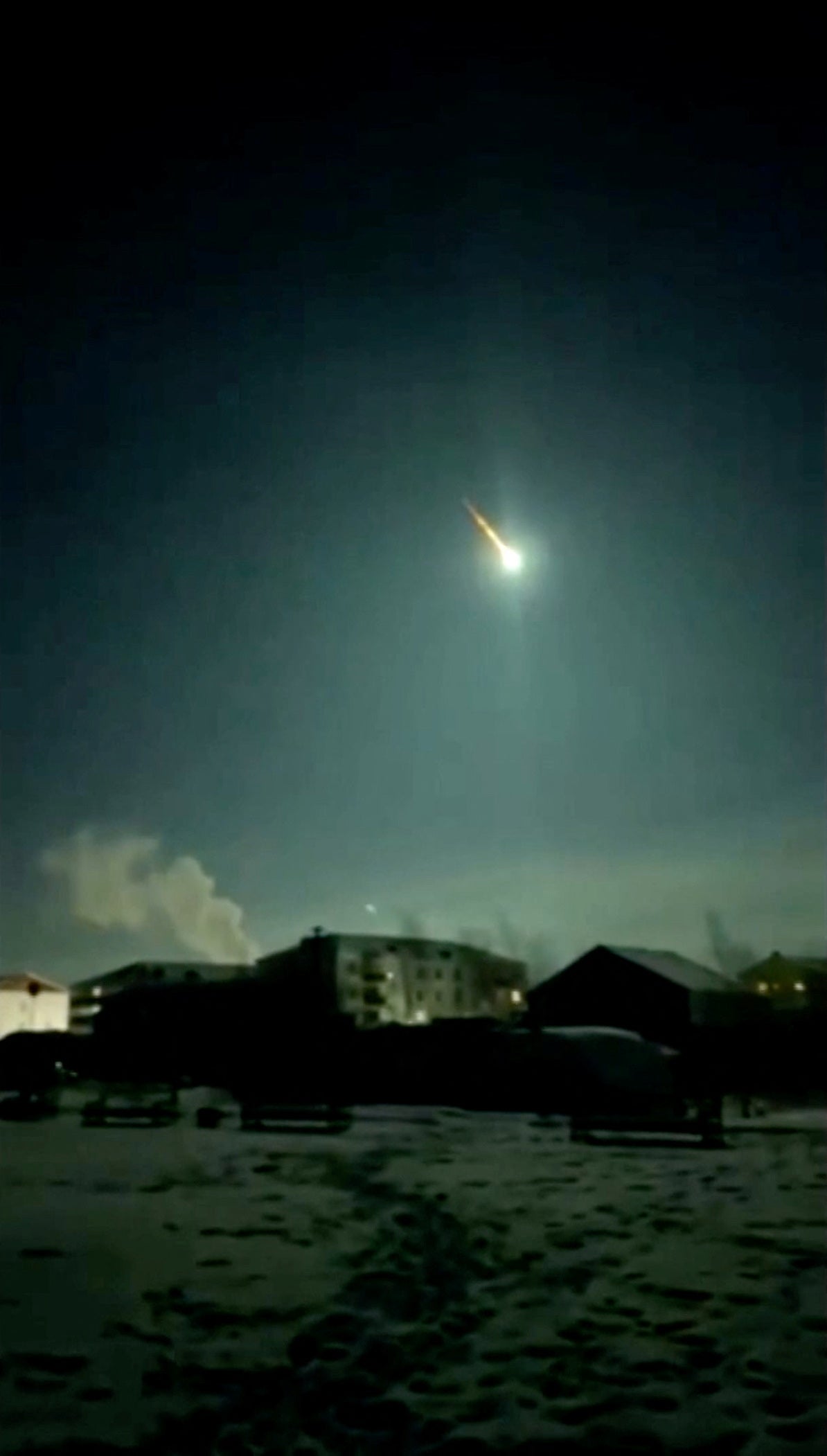Asteroid on collision course with Russia burns up in spectacular fireball
Small asteroid was spotted just 12 hours before it struck
A small asteroid burned up in a spectacular fireball over northeastern Russia on Wednesday, barely hours after it was detected.
The asteroid, measuring just about 70cm in diameter, was spotted “on a collision course” with the Earth just 12 hours before its appearance in the sky, the European Space Agency said.
Nasa credited the discovery of the asteroid, dubbed C0WEPC5, to the University of Arizona’s Bok telescope. “At 11.14am EST, a very small asteroid will impact the Earth’s atmosphere and create a harmless fireball over eastern Russia’s Olyokminsky district,” the American space agency said on Tuesday.
The asteroid impact at about 4.15pm UTC was predicted to be “harmless, likely producing a nice fireball in the sky over northern Siberia”, the European agency noted.

“It will still be quite spectacular, visible for hundreds of kilometres”, Alan Fitzsimmons, an astronomer from Queen’s University in Belfast, told New Scientist before the rock burned up.
People in the eastern Russian republic of Yakutia shared their sightings of the light show on social media. “Residents of Olekminsk and Lensk districts were able to observe in the night a tail similar to a comet and a flash,” the emergencies ministry in Yakutia said, according to Reuters.
The first videos of the #asteroid #C0WEPC5 entry in #Russia are coming out on @telegram . It appears to be very similar to previous asteroid entires (2022 WJ, 2023 CX1, 2024 BX1). Lots of fragments at the end, it probably dropped some rocks in a remote forested area. pic.twitter.com/LnVyTMA7oO
— Denis Vida (@meteordoc) December 3, 2024
“Thanks to observations from astronomers around the world, our alert system was able to predict this impact to within +/-10 seconds,” the European agency said.
The asteroid was the fourth space rock detected this year only hours before its collision with the Earth, and only the eleventh overall spotted imminently before impacting the planet.
Asteroid 2024 UQ was spotted only hours before it burned up over Earth on 22 October. Another rock, dubbed 2024 BX1 and measuring just about a metre across, burned up over Berlin in January while 2024 RW1 caused a fireball over the Philippines in September.
Space rocks detected imminently before their collision course with the Earth are usually rare and pose little risk to life but some, like the Chelyabinsk meteor of 2013, could prove dangerous.
The meteor which exploded over the Russian city of Chelyabinsk on 15 February 2013 released the energy of 30 atomic bombs, shaking the ground, damaging buildings, and injuring over 1,500 people.
It is possible that fragments from C0WEPC5 likely reached the ground, but no damage has yet been reported after its descent, according to Reuters.
Join our commenting forum
Join thought-provoking conversations, follow other Independent readers and see their replies
0Comments